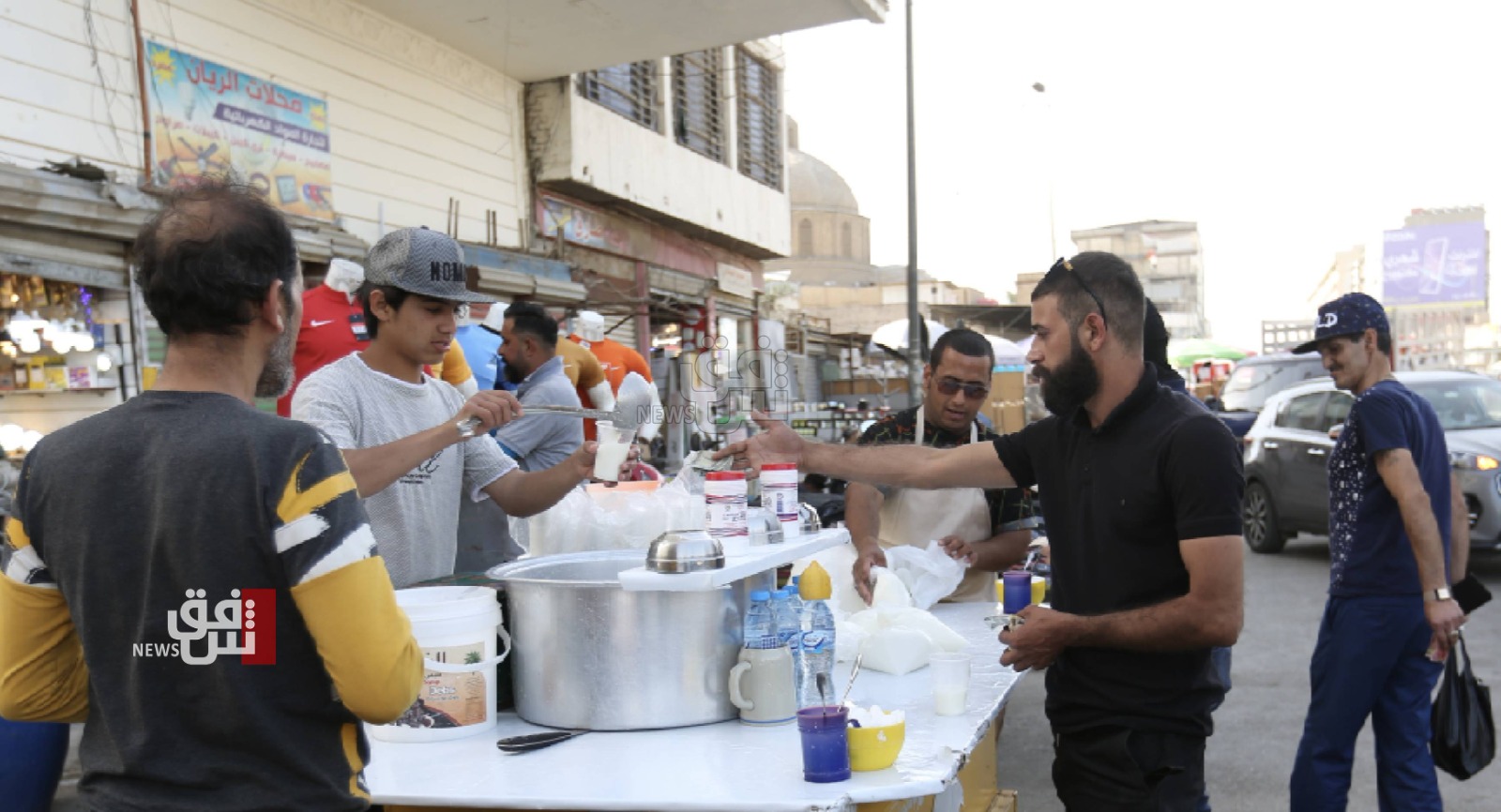Inequality and exploitation: Iraqi workers' battle for rights and dignity
 2023-05-06 00:30
2023-05-06 00:30Shafaq News / On the occasion of International Workers' Day, it is imperative to shed light on the challenges that Iraqi workers face concerning their legal rights, social and health security. The current situation necessitates the consolidation of efforts to develop concrete plans that address the deteriorating conditions of workers and the industry in Iraq.
Each year on May 1st, the world commemorates International Labor Day, an annual event celebrated in numerous countries to honor workers. This day is an official holiday in over one hundred nations.
In keeping with this tradition, the Iraqi government ordered the suspension of official working hours on May 1st, coinciding with International Labor Day. Despite this gesture, many Iraqi workers continue to struggle with a lack of rights and job opportunities, making them vulnerable to exploitation by employers.
Ali Karim, a 33-year-old worker from Karbala governorate, is one such victim of the absence of rights and job opportunities. Employers often exploit workers by increasing working hours, lowering wages, and crowding out foreign workers in various labor sectors. Karim urged the government, parliament, and labor unions to take decisive action to improve the situation. He suggested that the government distribute financial grants to young people to start their own projects and reduce the number of foreign workers so that Iraqi workers can work.
MP Razan Saleh confirmed that workers in Iraq are currently facing several challenges. She emphasized the need for the government to create job opportunities to reduce unemployment, provide economic assistance to the country's agriculture and industry sectors, activate local factories and grow all sectors, and determine a suitable wage rate for workers to meet their living needs and solve their problems.
Activist and human rights defender Sarah Jassim warned that Iraqi workers' lack of awareness of their rights and the scarcity of job opportunities have led to them waiving their rights. She pointed out that the percentage of workers in the government sector is 37%, meaning that the total labor force exceeds 12 million. There are approximately 4-5 million workers in the private sector, of whom only 650,000 workers are registered in the social security law, indicating the need for fundamental solutions.
Jassim further called for the application of laws to reduce many phenomena, including workplace harassment and illegal child labor. She also advocated for the utilization of the country's energies, competencies, and wealth to achieve industrial and productive growth, which requires state institutions to issue sound decisions to prevent economic collapses that may threaten the Iraqi economy.
Ahmed Eid, an expert researcher in economic affairs, affirms that the situation of the working class in Iraq is challenging due to various challenges and problems regarding their legal rights, social and health security. He further highlights that despite the passage of Law 37 of 2015, Iraqi workers still suffer from issues such as discrimination, employer greed, and weak laws that have contributed to the marginalization and denial of workers' basic rights.
To alleviate pressure on government sectors, Eid suggests that the state should impose a limit on insurance and pension deductions, open up investments, provide job opportunities in productive sectors, and raise workers' salaries to ensure the possibility of paying insurance dues.
Furthermore, Sattar Danbous, the president of the General Federation of Trade Unions in Iraq, agrees that raising the minimum wage, amending labor codes to address sexual harassment and arbitrariness, passing laws governing union organization, and passing the retirement and social security law are essential steps. The latter has been suspended for over six years. Danbous also highlights the issue of foreign workers in Iraq, which has resulted in disorderly entries, lack of oversight by the Ministry of Labor and Social Affairs, and harm to Iraq's unemployment rate.
It is worth noting that the unemployment rate in Iraq is 16.5%, according to a survey conducted by the Ministry of Planning in 2022 of the labor force in Iraq in collaboration with the International Labor Organization.
Legal expert Ali al-Tamimi explains the legality of the presence of foreign workers in Iraq, stating that no specific law on foreign workers has been enacted, and Labor Law 37 of 2015 and the Foreigners' Residence Law 118 of 1978 are applicable. These laws require workers to obtain a work permit, passport, entry visa, and other security conditions for their presence.
Violators are typically fined an amount not exceeding $500 and then deported based on the decision of the investigative court. Al-Tamimi emphasizes that the presence of foreign workers has an impact on the economy, criminal security, unemployment, and the outflow of funds. He advocates for a special law to detail all aspects of their presence, existence, and deportation, as many work without residency, and the only solution before the judiciary is to deport them to their countries.
No comments:
Post a Comment